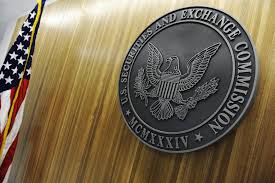Private Equity FCPA Enforcement
 FCPA enforcement efforts are not so hard to follow and predict – the government likes to provide advance warnings as an effective means of deterrence. Justice Department and SEC officials will often tell the public their views on enforcement matters and then follow through on them. We have seen many examples of that in the medical device and pharmaceutical areas, as well as oil and gas and logistics industries.
FCPA enforcement efforts are not so hard to follow and predict – the government likes to provide advance warnings as an effective means of deterrence. Justice Department and SEC officials will often tell the public their views on enforcement matters and then follow through on them. We have seen many examples of that in the medical device and pharmaceutical areas, as well as oil and gas and logistics industries.
Starting in 2011, the SEC has been hard at work examining private equity funds for FCPA Violations. The initial subpoenas and requests for information sent shock waves through the industry and opened up new areas for compliance and enforcement – focusing on sovereign wealth funds and portfolio companies.
Following this initial set of actions, we have several confirmed investigations relating to “princelings,” the hiring of relatives of government officials, the disclosures by BNY Mellon and Och-Ziff’s interactions with a Libyan sovereign wealth fund.
While I know there has been extensive debate over the “princeling” practices and whether they practices violate the FCPA, the Justice Department has joined the SEC in this investigation indicating that there is a possibility of criminal prosecutions. DOJ has not been persuaded by arguments by defense counsel that the “princelings” practices do not violate the FCPA.
The legality of the princelings hiring turns on the question of “corrupt” intent. Were the hirings intends to influence the government officials to act contrary to their legal obligations? I am sure each case turns on the specific facts and surrounding circumstances, including statements by actors in emails, letters and other information.
DOJ and the SEC have some very big players under investigation as part of this investigation and they are not likely to turn away from the issues based on defense counsel arguments.
Private equity funds are under increasing risks for another reasons, completely separate from traditional FCPA analysis. Dodd-Frank ushered in a new era of SEC regulation of private equity funds. Private fund advisers are required to register with the SEC, making them subject to SEC routine examinations for the first time.
As a result, the SEC is starting to conduct routine presence exams of private equity fund advisers. Once on the premises and examining files, there is nothing to stop the SEC from discovering potential FCPA issues and violations.
The SEC’s presence exams have led to FCPA investigations. The focus of these exams is private equity advisers who engage in “expense-shifting” and “hidden fees,” where consultants or “operating partners” are paid without adequate disclosures to investors. Media reports have indicated that SEC examiners identified potential FCPA violations when examining these types of expenses and whether they were being used to pay foreign officials and then shifting the expense to investors as a fee.
Private equity funds also face serious risks by acquiring companies or engaging in joint ventures that operate outside the United States. Many private equity funds do not devote sufficient resources to conduct anti-corruption due diligence of an acquisition target.
 DOJ and the SEC are strictly committed to enforcing successor liability requirements, although they are much more flexible on the timing of such acquisitions under current policies and practices.
DOJ and the SEC are strictly committed to enforcing successor liability requirements, although they are much more flexible on the timing of such acquisitions under current policies and practices.
Private equity funds are vulnerable in this area. They have to allocate resources based on a risk-ranking analysis to make sure they devote sufficient resources to those risky acquisitions or joint venture arrangements.
Pre-acquisition due diligence is a must and private equity funds have to weigh whether a potential target presents significant corruption risks, either directly or through its third-party partners. In response to such risks, private equity funds have to develop adequate compliance mitigation strategies.















